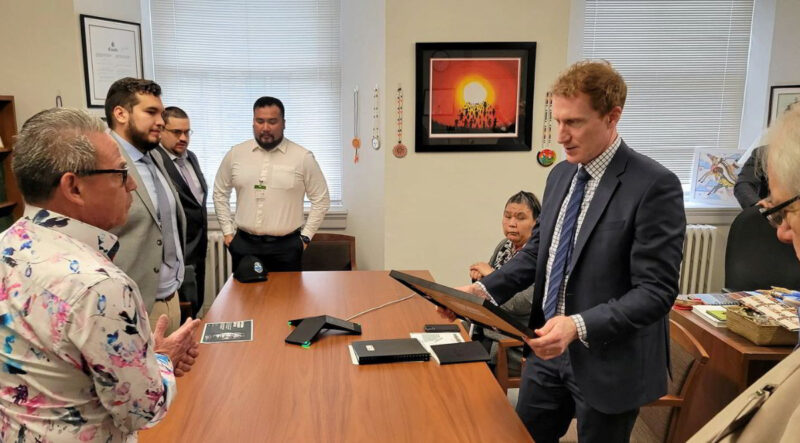Fears mount over fallout from salmon farm closures
First Nations and coastal municipal governments fear their communities will face economic devastation if salmon farms are forced from British Columbia’s oceans
Fabian Dawson
SeaWestNews
Indigenous and coastal communities in British Columbia which rely on aquaculture, face dire economic consequences if the Federal government moves to shut down ocean-based salmon farms in British Columbia.
The concerns over the economic fallout from the salmon farm closures, which will impact more than 4,700 jobs and $1.2 billion in economic activity annually, was a common theme in a ‘What We Heard’ report from Fisheries and Oceans Canada (DFO) that was released this week.
The report summarizes feedback collected during phases 1 and 2 of DFO’s Discussion Framework on the Future of Salmon Aquaculture in BC. It is meant to guide Federal Fisheries Minister Joyce Murray, who is expected to present options for the transition of B.C.’s salmon farming industry soon.
“The importance of the sector to rural coastal communities is a common theme in the report,” said Brian Kingzett, Executive Director of the BC Salmon Farmers Association (BCSFA).
“Both First Nations and municipal governments expressed the devastation their communities will face if salmon farms are forced from the ocean,” he said.
The report noted that a number of First Nations with aquaculture in their territories expressed strong support for the open-net pen aquaculture sector and urged the Government of Canada to respect their Indigenous rights to determine whether or not the conduct of aquaculture should take place in their territory, and upon what terms.
These Nations argued that the impacts of closing this industry would be catastrophic on their communities and urged the Government of Canada to conduct further economic assessments and to engage in meaningful consultations to develop plans more specific to, and respectful of, individual communities.
Currently, 17 First Nations have a variety of agreements and business arrangements with finfish aquaculture companies in BC with the longest going back over two decades. These 17 Nations make up much of the south coast of British Columbia, with supply lines in the Fraser Valley, processing plants on the Lower Mainland, and transport contracts across BC.
The Coalition of First Nations for Finfish Stewardship (FNFFS), recently released an analysis that showed the direct economic benefits from salmon farming to First Nations in coastal BC exceed $50 million annually through more than 276 full time jobs, benefit payments, and contracts with indigenous-owned companies.
In total, when indirect and induced economic activity is factored in, First Nation interests in BC’s farmed salmon sector on and off reserves are estimated to generate $83.3 million in economic activity, $47.8 million in GDP, and 707 jobs earning $36.6 million in wages per year.
The coalition has also said transitioning to land-based salmon farming is not an option for aquaculture-dependent coastal indigenous communities in British Columbia.
Kingzett said the BCSFA provided extensive information and data to support the engagement process.
“Unfortunately, the report only reflects the opinions submitted. It does not assess the accuracy or validity of submissions or distinguish fact from fiction,” he said.
“DFO heard from some stakeholders that land-based salmon farming is the solution. We know this is simply not true. Vancouver Island and Coastal British Columbia does not have the land nor the green power to support growing salmon on land sustainably, and we are too far from the market for land-based methods to make good business sense,” said Kingzett.
While DFO’s engagement to date has been about salmon farms and wild salmon, it is well known that climate change, habitat loss, and foreign fishing are the big-ticket items to be addressed to protect Pacific salmon.
“The BC salmon farming sector remains committed to wild salmon stewardship, and we continue to innovate to reduce our environmental footprint while ensuring that we remain a negligible risk to wild salmon,” said Kingzett.
The ‘What We Heard’ report noted that participants urged the federal government to take a holistic approach, make clear and rational decisions based on sound science, and consider the implications of the transition plan on coastal communities, First Nations, and Canadians more broadly.
Members of the Coalition of First Nations for Finfish Stewardship recently met with Canada’s Indigenous Relations Minister Marc Miller to discuss the transition of fish farms in traditional territories. Photo courtesy of FNFFS

